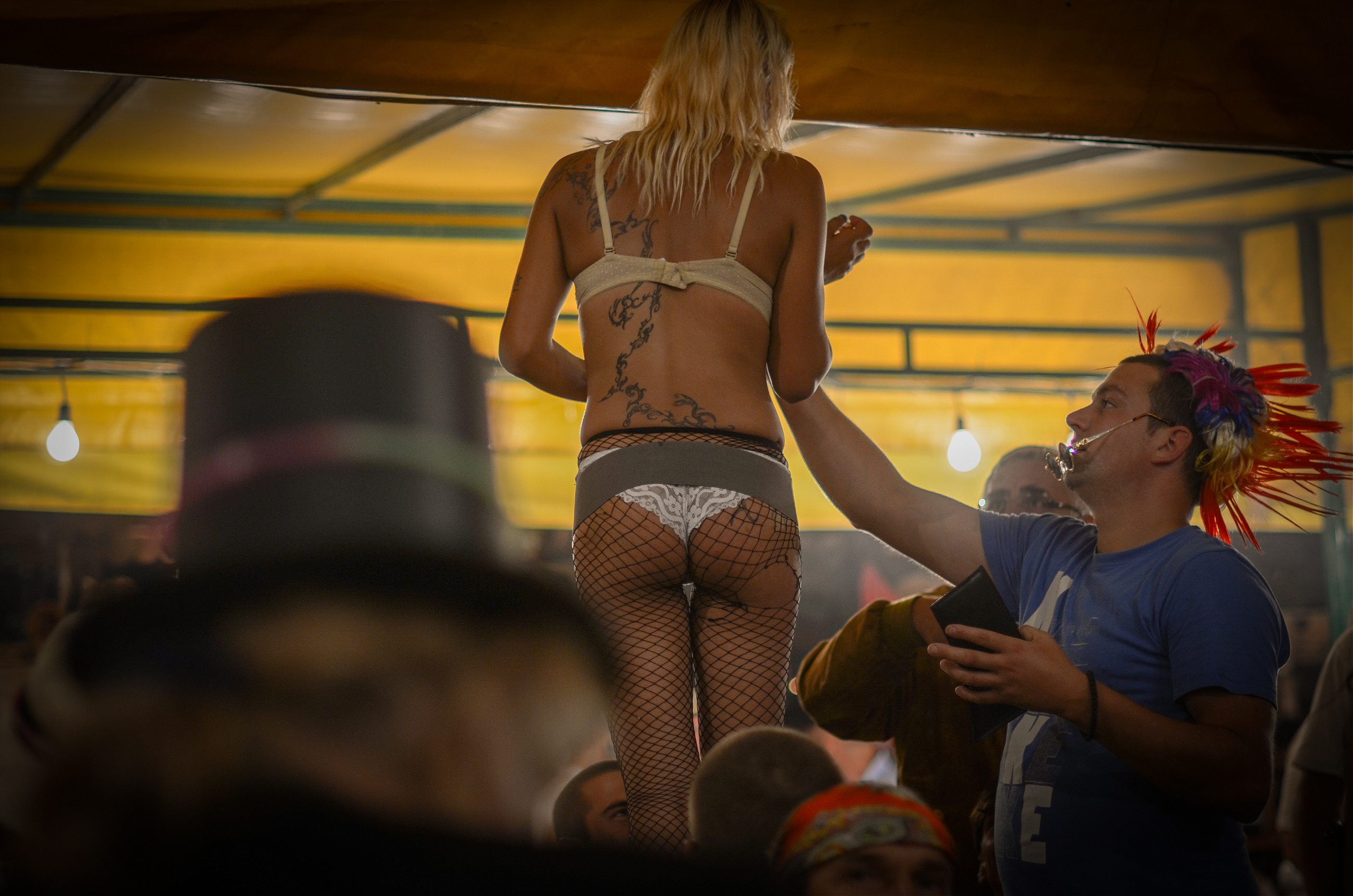For one week a year, the hard-bitten Serbian town of Guca erupts with blaring trumpets, pig roasts, and a splash of nationalism.
GUCA, Serbia—
The afternoon sun glints off the scales of a 6-foot python as the unfortunate reptile is held aloft by a man with a shaved head, nearly 10 feet off the ground, straddling the shoulders of a bronze statue of a trumpeter. Beneath him, in the light shower of his sweat, are more than a dozen other men, most of them swilling beer, whose only thought is to join him at the top of the human pyramid.
Together, the heaving mass makes an elevated attempt at dancing to the unique cacophony of a Balkan brass band. Only in this case it’s dozens of bands that march around the surrounding streets like platoons from a brass army blaring out competing tunes. Amid the sound and fury, the revelers lean out from the limbs of the statue like sailors in a high wind and wave their arms to no particular rhythm.
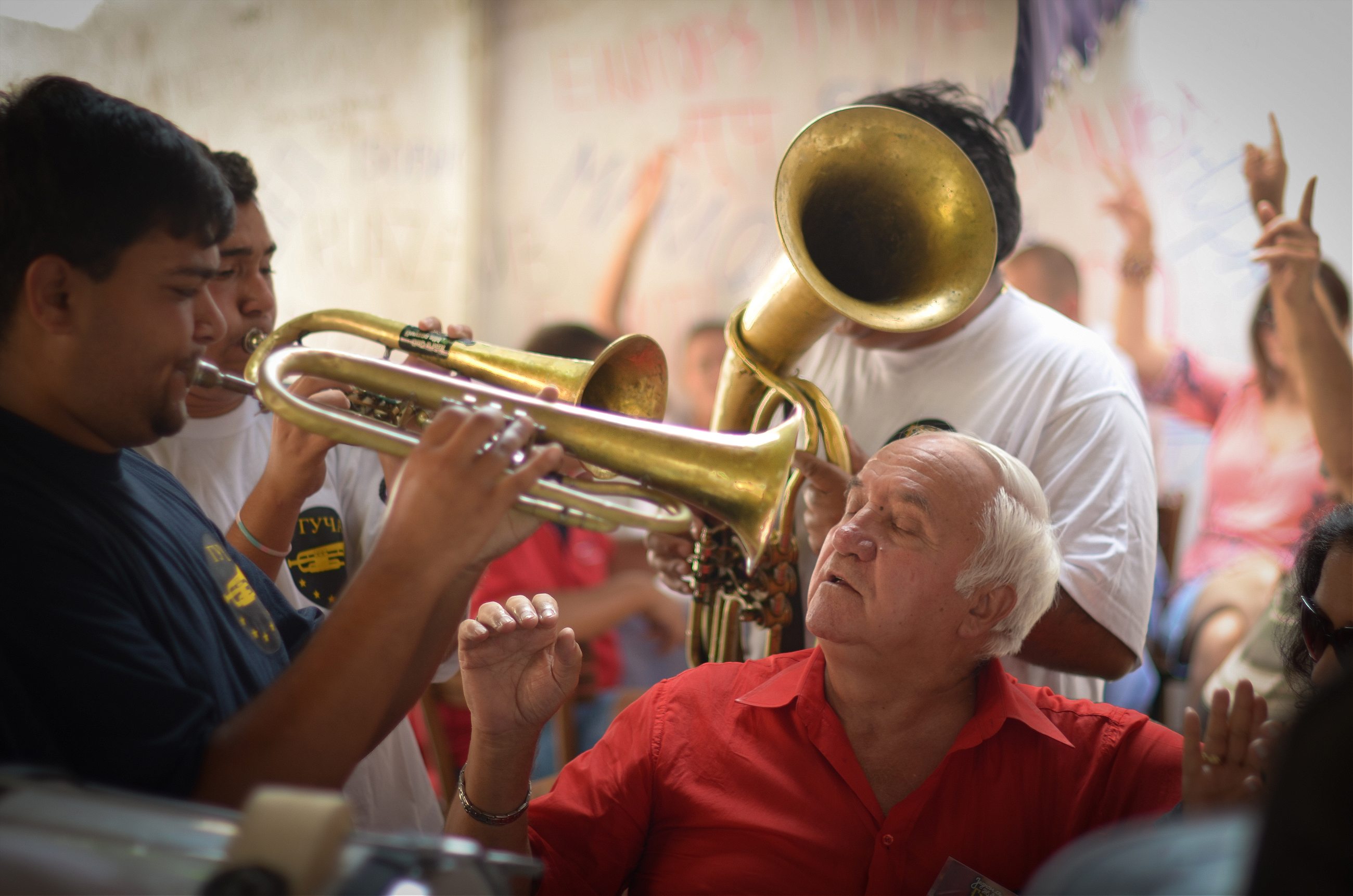
The metal musician is the centerpiece of Guca, a small industrial town in southwest Serbia that spends 51 weeks of the year quietly moldering away amid the ruins of Yugoslavia’s shuttered factories. On the 52nd week, however, the population of about 1,500 people is engulfed by up to 200,000 visitors who descend on Guca for the trumpet festival, a caterwauling chaos of brass, snare drums, and day-and-night drinking that takes place in what a friend dubbed the “pig fog” of spit-roasting hogs. It’s a five-day battle of the bands that will test the ears, endurance, and liver of the hardiest visitor. The first trumpet sounds at 7 each morning, usually while the last note from the night before is still ringing in your inner ear.
The atmosphere is not so much infectious as hysterical. Driving into the town half an hour earlier to be greeted by a sprawling encampment of beer tents and souvenir stalls, and a wall of exuberant noise, we were led through the crowds to a schoolyard. In the anarchy it made perfect sense to park the car inside the posts of a soccer goal and celebrate as though we had scored. The rest of the lot was filled with the touring bands’ minibuses, making pilgrimage to the trumpet’s answer to Mecca. What were previously sleepily unfashionable clothing stores, news agencies, and bakeries have been packed with fridges that churn out enough beer to sustain the drunken momentum.
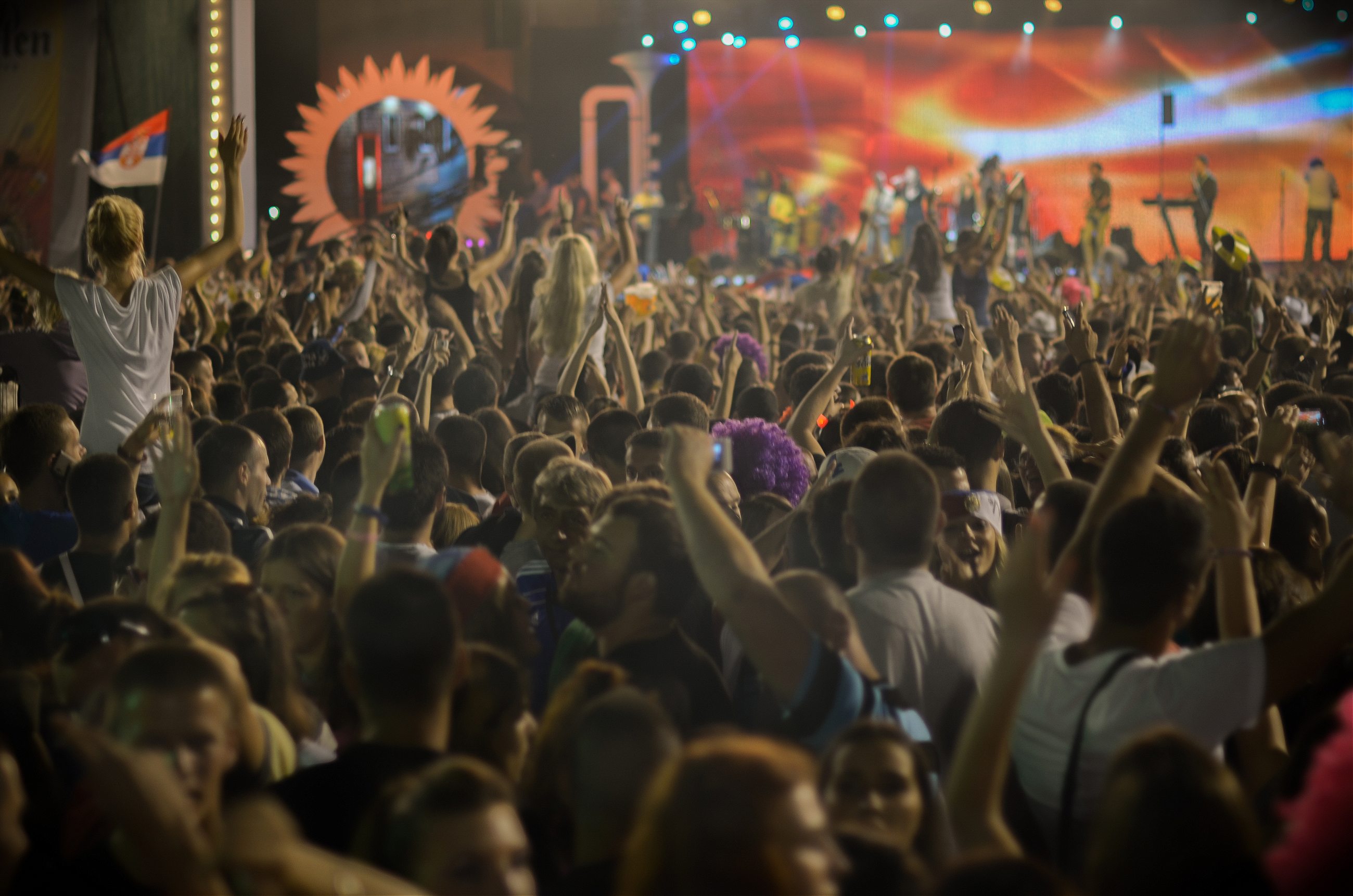
With this kind of math it can be hard to find a room. I’m watching the snake dance from the balcony of a shabby tenement built during the long rule of Tito, Yugoslavia’s late strongman, whose death in 1980 was the beginning of its gradual and violent breakup. The family of four who own the flat camp out in their small living room during the festival, renting their two bedrooms to as many people as they can cram in. Most people sleep, if they can at all, in their cars. The surrounding hillside is dotted with tents and lean-to shelters.
What began in 1961 as the Dragacevo assembly of trumpet players, gathered in a local churchyard, has in stages morphed into something altogether larger. Longtime observers agree that the real change came over the past two decades, following on from the breakout popularity of two-time Cannes Palm d’Or winner Emir Kusturica’s films, including Underground and Black Cat, White Cat, which brought the music of Goran Bregovic, one of the Balkans’ best known musicians, to an international audience.
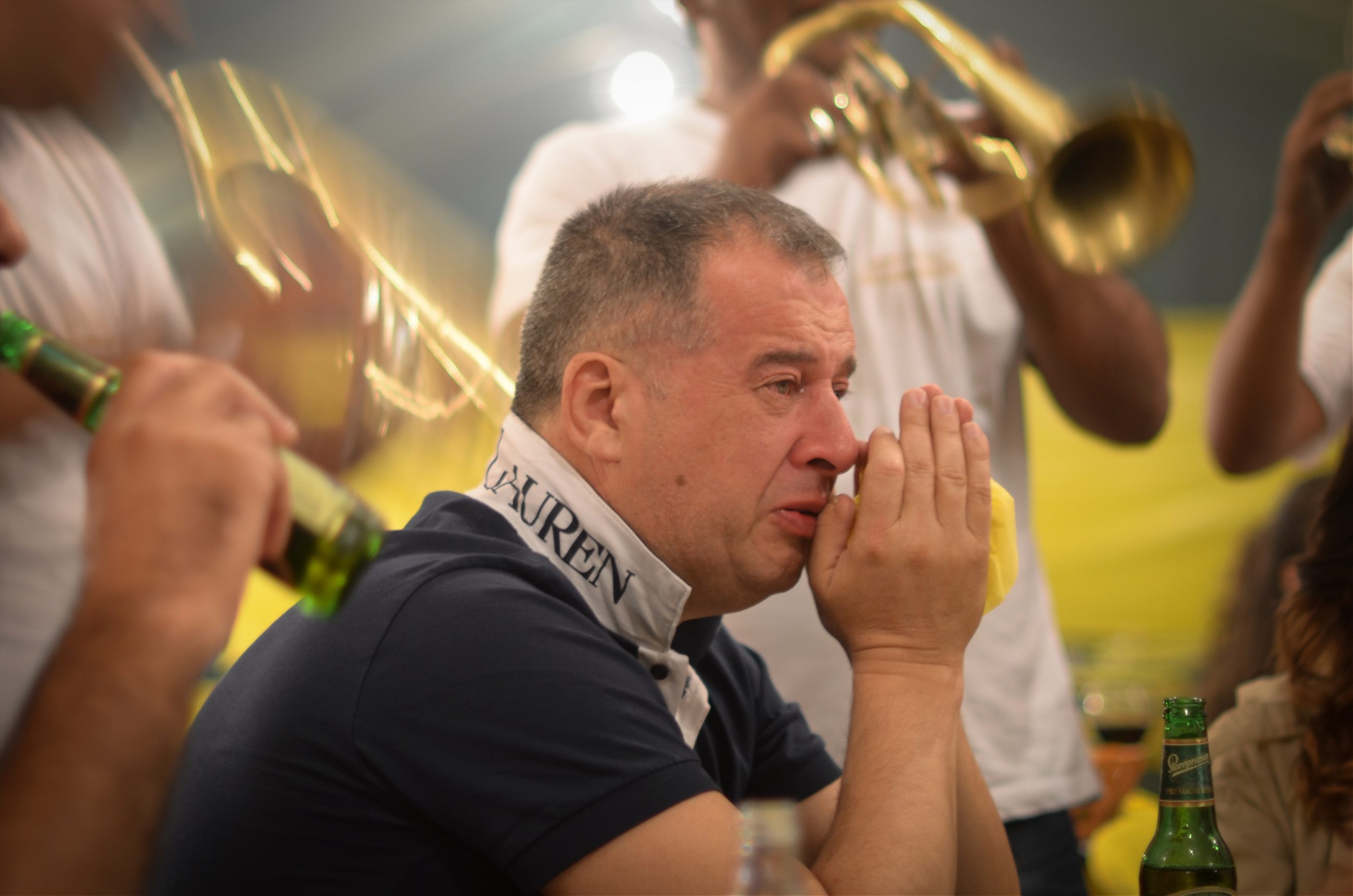
But the idea that it’s foreign interest that has driven people to Guca is at odds with the flag-draped Serbian feel of the festival itself. The high point of national fervor this year came on the August 8 concert by Svetlana Raznatovic (née Velickovic). The widow of the notorious Arkan—a paramilitary leader who came to prominence as one of the nastier actors in the conflicts that collapsed the former Yugoslavia—she is known to her fans as the “mother of Serbia” and to everyone else by her stage name Ceca. She is certainly the monarch of “turbo folk,” a kind of spiked take on folk music that has taken its rural and conservative roots and stitched them to the loudest and most plastic form of pop.
On stage, Ceca revels in the nationalistic fervor, thumping out her greatest hits to a crowd of teenage girls wrapped in the red, white, and blue of the Serbian flag, many of them sporting imitation military caps. There’s an argument to be made for the military paraphernalia, given that Serbia’s trumpet tradition can be traced back to regimental brass bands, but it’s hard to escape the feeling that this is a costume party more than a connoisseur’s event. T-shirts celebrating Arkan sit alongside others featuring sexual puns and ads for slivovitsa, the intoxicating plum brandy that provides a turbo boost to the determined drinker.
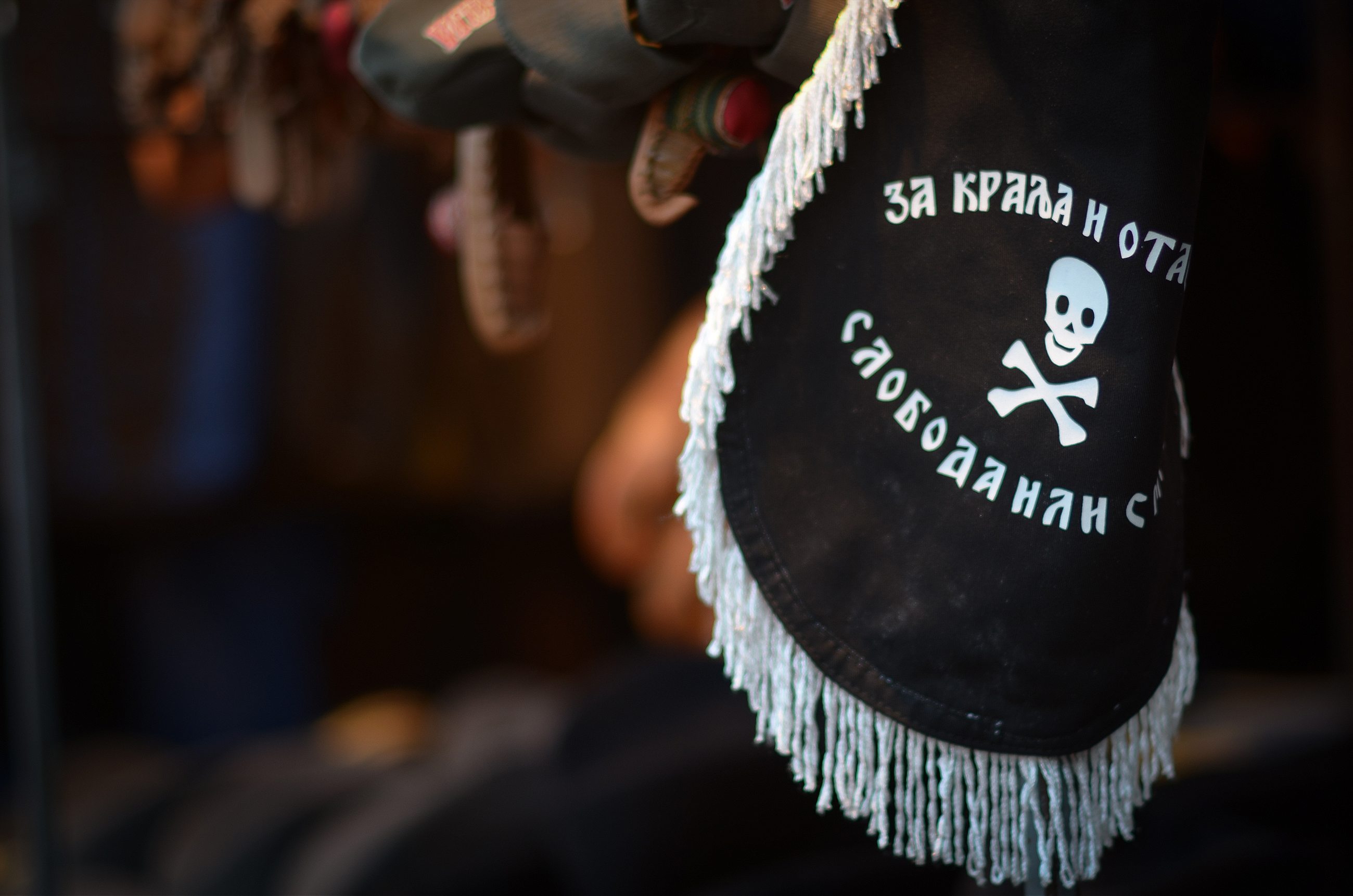
There is also genius aplenty amid the fun and grotesquery. Ceca is followed on stage by trumpet master Dejan Petrovic and a dozen of the survivors from the elimination phase of the battle of the bands. Past winners, like the virtuoso Dejan Lazarevic, get the best slots, around midnight each night. But what happens on the main stage is only part of what draws the crowd.
Despite the skinheads and bare chests, the army berets and reminders of wars past, there is a singular lack of menace. The smattering of foreign faces and languages are greeted with excitement and offers of alcohol.
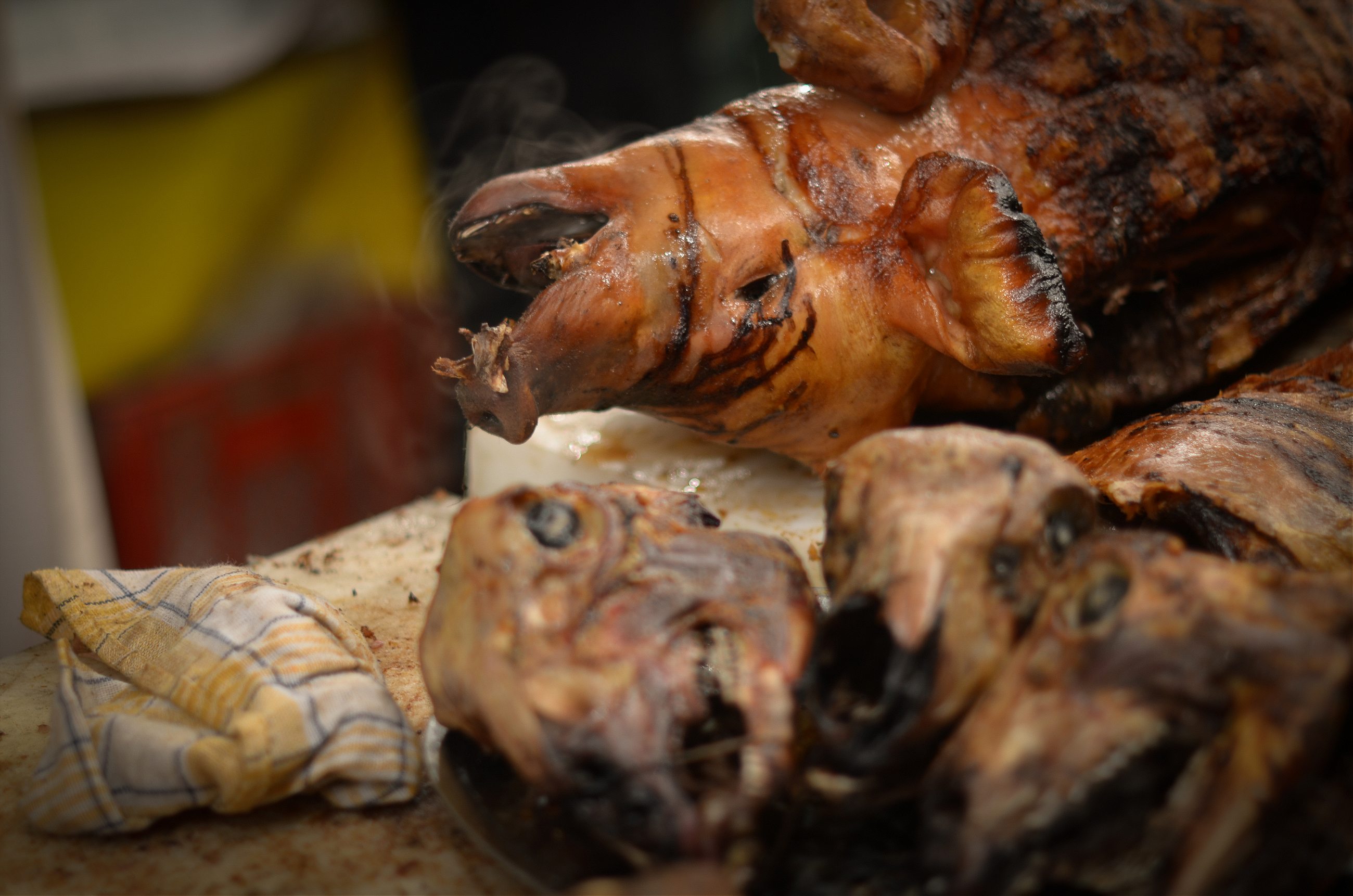
Half the “ethno restaurant” owners from the surrounding areas, and several from the capital, Belgrade, set up smokey shop barbecuing suckling pigs under tarpaulin into the small hours. Their plastic tables are covered with delicacies like svadbarski kupus (wedding cabbage), which boils throughout the day in giant clay pots. Meanwhile, customers are entertained by mainly Roma bands who blast out Balkan favorites, while grown men, many of them Serbs who work abroad and come home for holidays, weep into their slivovitsa and slap bank notes on trumpeters’ foreheads. It’s emotional. For their part the musicians try to play up any connection to more famous counterparts, with at least a dozen bands claiming to have featured in Kusturica’s comedy Arizona Dream.
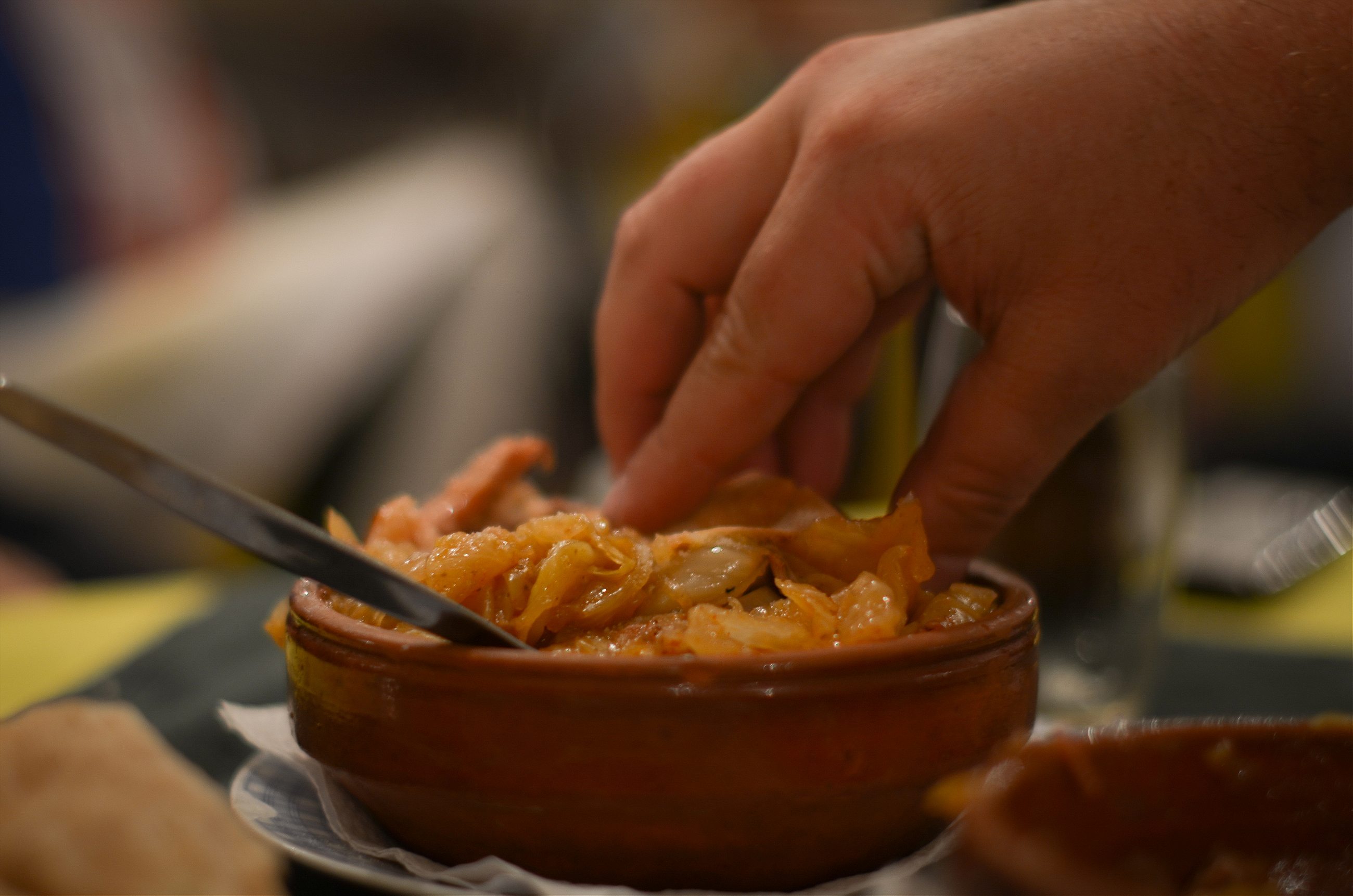
For the traditionalists there can be distaste at the populist stampede that has trampled the gentler folksiness of the past. Jasna Ilic, a Guca resident, remembers when guests were received individually with bread, salt, and rakia, a local spirit. These days she laments the sponsorship of beer companies and tabloid newspapers and tacky events like a “Miss Cleavage” contest. At one time the women would be dressed in the bright wool patterns of folk dance. “It’s very embarrassing, all these belly dancers and men putting money in their underwear,” she says.
It’s hard not to feel sympathy for her as she points to the sedative pills she takes each year to cope with the noise, especially when the umpteenth bad rendition of Bregovic’s hit “Kalashnikov” is wailing through the window. And yet for those of us who don’t have to live through it every year, the first 72 hours of Guca can be a literal and emotional blast.
